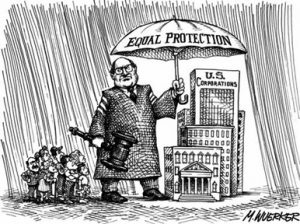Our nursing home abuse attorneys unfortunately reject far more cases than we accept. Many justifiably aggrieved families ask why no lawyer will take their nursing home case. Rest assured, it is not personal. The decision to reject nursing home claims is usually due to the laws of the state where the nursing home negligence occurred.
These are common reasons attorneys reject nursing home negligence cases.
Nursing Home Abuse Cases Involve Plaintiffs with Limited Life Expectancy or a Poor Quality of Life
Candidly, damages drive the value of all personal injury lawsuits. That is the reason why a twenty-year-old plaintiff that has a lifelong back injury can be awarded $10 million. They have a lot of life left to live with that injury.
Unfortunately, everyone in a nursing home is already sick, and usually elderly. Nursing home residents do not enjoy the life expectancy, or quality of life, that a twenty-year-old college student has.
If a victim has only a few years left of life, and that quality of life is minimal at best, a jury will not assign a large dollar amount to the loss of that life. This is a hard fact for families to accept. However, at trial, when a judge instructs a jury to evaluate a victim’s losses, they are literally instructed to analyze quality of life and life expectancy.
These factors make a huge difference in case evaluations. This is a common reason why many lawyers refuse to accept a nursing home liability case, no matter what the facts are.
Tort Reform Measures Block a Meaningful Recovery
 Tort reform is a legislative change in the law which makes it harder for a plaintiff (injured party) to bring a lawsuit.
Tort reform is a legislative change in the law which makes it harder for a plaintiff (injured party) to bring a lawsuit.
Sadly, due to the millions of dollars spent by the nursing home lobby, many states have seen harsh tort reform laws impeding a nursing home patient’s ability to bring a lawsuit against a negligent nursing home.
The real travesty is that nursing home abuse lawsuits change patient care for the better. They should be championed, not extinguished.
In for-profit nursing home corporations, the bottom line profit is what shapes decision making. If a nursing home corporation is forced to pay out a hefty six figure settlement for neglecting a resident, the company will implement changes to prevent the harm from occurring again. This is the justification for allowing nursing home residents to sue nursing homes. To create positive changes in the quality of care.
When states pass nursing home tort reform measures, the threat of litigation is gone. For-profit nursing home conglomerates can literally get away with murder, for free.
The Nursing Home is Immune from Suit
Many facilities that are government-owned enjoy sovereign immunity. This means, a civil claim for damages is either blocked entirely, or greatly diminished in available damages. Most attorneys will not accept cases against a sovereign immune defendant, due to capped damages, limited attorneys fees, or burdensome pre-litigation procedural hurdles.
There are other forms of legal immunity that can block a lawyer from prosecuting a nursing home negligence lawsuit. For example, many states have COVID immunity bills for COVID-based nursing home neglect cases.
It is Legally Impossible to Prove Negligence
 When a garden variety personal injury lawyer has a car accident case, usually, he has two competent adults who blame the other one for causing the crash. It’s a he said / she said.
When a garden variety personal injury lawyer has a car accident case, usually, he has two competent adults who blame the other one for causing the crash. It’s a he said / she said.
In nursing home cases, we rarely if ever have a living, competent victim. More commonly, we have a deceased victim, or a victim that is so far gone with dementia that they would be unable to testify as to what really happened in court.
Because of the unavailability of the witness, we must rely on the nursing home’s narrative as to what happened. This oftentimes means, we may genuinely believe what a family member is telling us, but there is no way to substantively prove it with evidence. And as the plaintiff in a civil case, we bear the burden of proof. Meaning we have to affirmatively prove our case.
It is Near, or Past, the Statute of Limitations Period
Most nursing home abuse cases are subject to a shorter than usual statute of limitations period. This means you only have a small window of time to bring your case.
For example, in Tennessee nursing home abuse cases, you only have one year to bring the case. Florida nursing home abuse cases have a two year statute of limitations. New York nursing home cases confusingly have a three year window for personal injury, two year window for wrongful death, and a 2.5 year statute of limitations on medical malpractice.
This may seem like enough time, but as attorneys, we need to investigate, request medical records, open an estate, and bring on experts. This can take months, sometimes even longer. Delay is never a good idea if you believe you have a case.
If you suspect neglect, speak with a nursing home abuse attorney right away.
Free Nursing Home Abuse Case Consultation by a Law Firm that Solely Does Nursing Home Cases
Even if you’ve been rejected by another law firm, you are welcome to run your case facts by our nursing home attorneys to see if we can help. Our firm’s narrow focus is on nursing home abuse litigation so we may be able to help where others could not.
We have helped thousands of families dealing with injuries like bed sores, falls, and wrongful death.
Here’s the best way to see if we can help. Use the web submission form titled ‘Do I Have a Case?’ below to provide us as much detail as possible regarding the case facts. Please describe, in detail, the name of the at-fault facility, what specifically happened, what injuries occurred from it, and when this occurred. The more detail, the better.
Once you submit your case facts below, we will be in touch with you and let you know if we can assist. This is a completely free case consultation, so you have nothing to lose.


